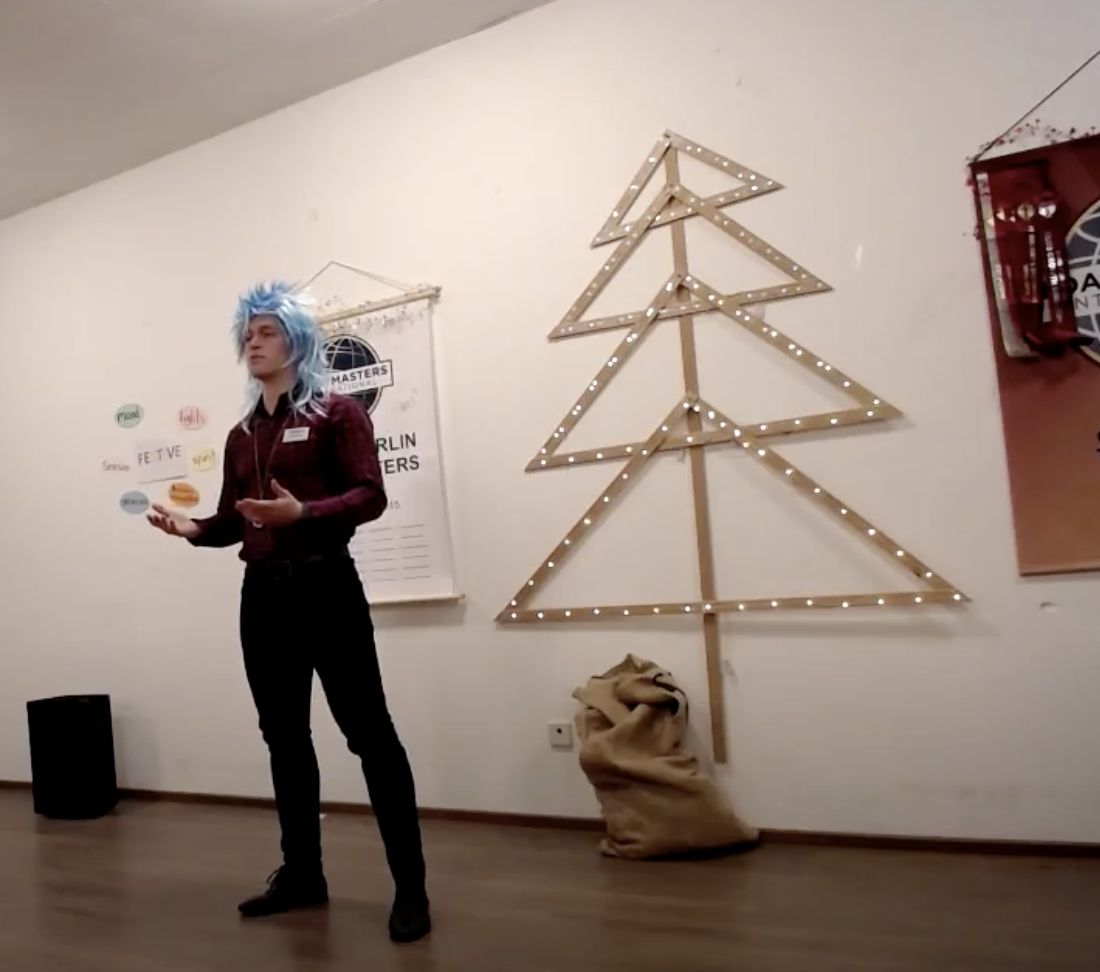The Fog of Ancient History 🛕
Published:


Instructions
1-2 Writing a Speech with Purpose
This project addresses topic selection strategies, how to define the purpose of your speech, and methods for producing a well-organized speech.
Purpose: The purpose of this project is to learn or review basic methods for writing a speech and to present a well-organized speech on any topic.
Overview: Select a topic that appeals to you. It can be anything. Be sure your topic is narrow enough to be an effective 5- to 7-minute speech. Clearly define your topic and consider your goal for your speech. Before you organize your speech, clearly define your purpose. Practice your speech and continue to refine its organization. Present your speech at a club meeting.
Speech timings: 5:00, 6:00, 7:00
Script
Do you ever think about what your ancestors were like? And I don’t mean my grandma from a few weeks ago, we all know how cool she was, with her love of chocolate and supremely wise philosophy. I mean about thousands or even tens of thousands of years ago, when you had to do your homework on clay tablets, when veganism was a fad reserved for below-par hunters and Toastmaster didn’t even exist! Imagine how inadequate some people must have felt when giving a speech to festively convince their fellow farmers to domesticate goats!
Dear Toastmasters and guests, I would like to wish you a warm and festive welcome.
I often think about what life would have been like at these times: but it’s really hard! Yes, we see movies, read textbooks, but combining tastes, smells, visuals and emotions makes it impossible for us to really imagine that time. This is so frustrating but also quite exciting, it enables us to dream about what it might have been.
As any minimally respectable historian would tell you “you have to know the past to understand the present and face the future”. That’s the kind of quote which has been rehashed in influencers instagram bio, so I will refrain from giving any attention to it. And I’m not fond of giving too many lessons-like this quote, but I do think that learning about our history can be a lot of fun! Imagine being immersed in a time where a mammoth, a sloth and a sabre-tooth tiger try to save a human baby from a freezing earth, how cool is that! And if that wasn’t enough, there was an indestructible sabre-tooth squirrel fighting for its life to eat an acorn! Let’s then think a bit more about the lives our ancestors lived.
Humans have evolved and changed over millennia, and yes, it’s true, we still have the same basic needs. However, it does make me wonder whether people in ancient times also had the same problems as we did. Did they also complain as much as the Germans (and the French)? Were overprotective parents already a thing? The most important thing I want to know is where people went for public speaking training.
I would pay a lot to be a fly on a wall during these times. Imagine seeing the real-life reincarnation of “Friends”, but Egyptian style! Think about it! Ross would be unemployed with no dinosaurs to research, Rachel would be married to a Roman Emperor, not to the unemployed palaeontologist! Monica would be OCD about her fish stall and Chandler’s jokes but would start something like: “why did the alligator cross the nile?”. I’m really not sure where Phoebe would be as I don’t think In Vitro Fertilisation existed then, but maybe she’d be some kind of spiritual mind reader, warning people about the arrival of super computers taking over the world like GPT3. Joey would be at the Egyptian equivalent of the local tavern festively chatting up women: I’m wondering whether his ageless pickup line also worked then? Honestly, it seems like Joey has the most plausible reconversion out of all of them.
When I was young, I would also think about what I would be doing in Ancient Egypt. As a Swiss that loves to ski and works as a data scientist, I’m not sure there would be a place for me in the times of the pharaohs. However, I did study economics, so I can easily imagine myself arguing against the labor strikes of the pyramid slaves, making sure that King Ramses achieved optimal efficiency in his real estate ventures.
These thoughts do make me think how little we really know about our ancestor’s lives, anybody who thinks that the Flintsones was an accurate description of the Stone Age might be a bit deluded. That’s why I sometimes feel like we are a bit arrogant about how much we know about ancient history. And I don’t mean arrogant about not respecting ancient knowledge or traditional civilisations, that’s the next speech! But arrogant about how much we think we know.
In the past decade, incredible discoveries have been made in places like Turkey, Indonesia and Malta. Mysterious, ancient civilisations have been discovered and have pushed back the timeline of human civilization from 6,000 years ago in Mesopotamia to nearly 12,000 years ago, before the Ice Age. These discoveries have shown us how advanced these ancient civilisations were. They had a very deep understanding of astrology and the cycles of planets and stars. They built incredibly grandiose and festive structures to honour these celestial signs. This is flying in the face of what archaeologists, anthropologists and historians believed until now.
And this is exactly why I think we are currently at the start of the Dunning-Kruger effect. For those that are not familiar, it is the idea that when first learning about a new skill for a short period of time, people think they are experts about it, that was me after my first icebreaker speech a few weeks ago. But as they learn more and more about it, and receive feedback and work on their second speech, they realise how little they know. I hope these absurd examples and parallels vividly show us how much there is still to be understood and discovered about the past. If you take away something from this speech, let’s be humble about what we know, what we think we know and especially about what we don’t know. because I really doubt Toastmasters did not exist in Ancient Egypt.
